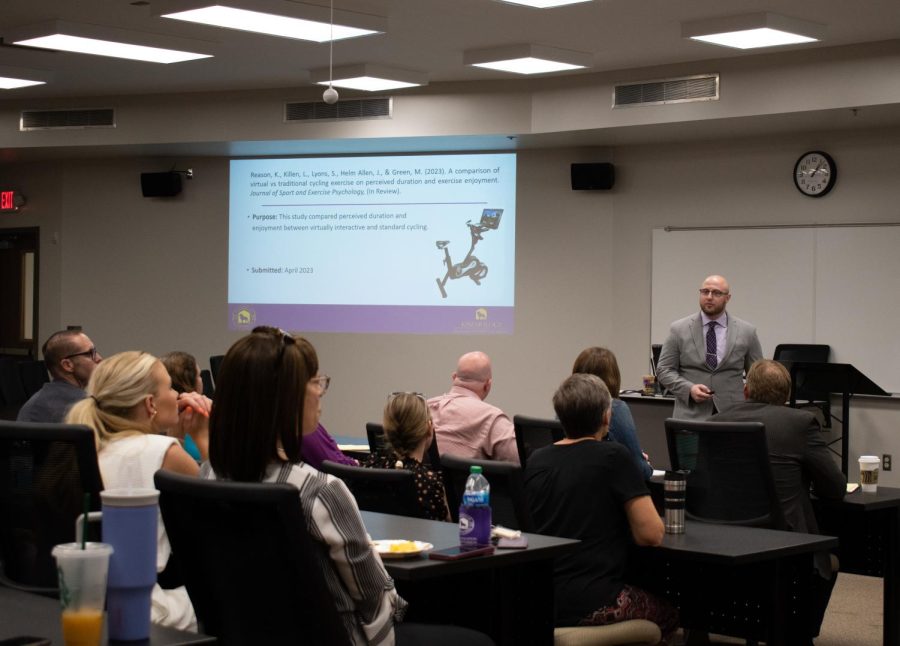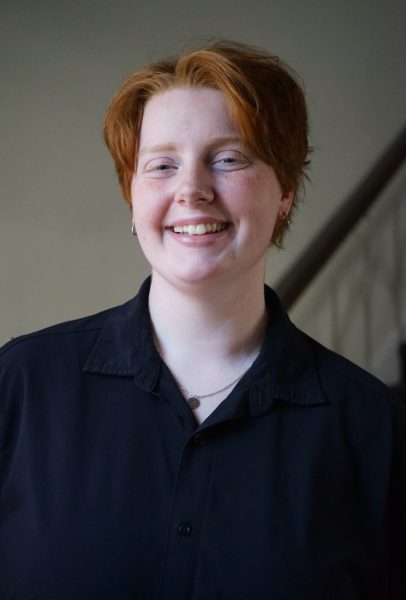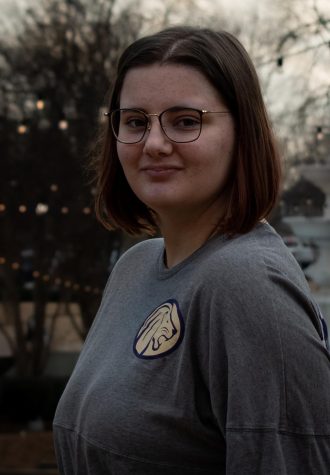Reason earns UNA’s first PhD
May 1, 2023
On April 19, Dr. Kyle Reason made university history by being the first student at the University of North Alabama to complete a dissertation defense and earn his PhD, which he will graduate with at the end of the spring semester.
Reason, whose degree is in clinical exercise physiology, focused the research for his dissertation on getting people who are sedentary to overcome barriers that keep them from being physically active.
Though the Peloton exercise bicycle has gained popularity in recent years, little research has been done surrounding its effectiveness, especially in the sedentary populations for which they are targeted, so Reason decided to create his own research surrounding this topic.
After spending around 200 hours in the lab doing research, Reason culminated his results into a presentation, which he explained at his dissertation defense.
Each of his participants completed three trials: one using the Peloton application while exercising alone, one using the app while exercising with a partner and one with no app while exercising alone. Various types of information, both physical and psychological, were collected while the participants underwent the trials, and Reason used these results to come to his conclusions about exercise adherence and enjoyment while using the Peloton.
When using the Peloton spin class app, it showed individuals had higher levels of enjoyment,” said Reason. “As the literature suggests, there’s a strong link between enjoyment levels and individuals wanting to participate in that activity. It makes sense, right? You’re not going to want to do something that’s not enjoyable to you, but you are going to want to do something that is enjoyable, so if we can increase the enjoyment levels like the Peloton spin class did, people are going to be more likely to go back.”
In comparing the results of participating with a partner versus alone when using the Peloton app, Reason was surprised to find out that there was no change in the intensity level of participants. However, because participants all started at the same fitness level – sedentary – and were not challenged by someone of a higher fitness level, the lack of perceived competition might have been the cause of the lack of a heightened intensity selection.
Reason believes that the results of his research can be used to motivate people to continue being physically active in their daily lives.
Aside from the key takeaways from the research itself, Reason learned to trust himself in his research abilities.
“When you first enter into any graduate program, you have some level of impostor syndrome,” Reason said. “This dissertation process has solidified my own abilities to conduct research and teach. I no longer feel as great of a level of impostor syndrome because of the process of the dissertation and how our faculty have laid that out with the whole mentorship process. Dr. Killen started off in the beginning really guiding me, but then toward the end it was more about rethinking things or finding what was wrong with things. That is an intentional part of the dissertation process, and I could not have asked for a better mentor to guide me through it.”
Dr. Lauren Killen, the chair of Reason’s committee for his dissertation, enjoyed the chance to see her student grow, perform his own research and present it in his defense.
“It’s been an outstanding experience,” said Killen. “He’s very coachable. He seeks feedback and then goes to apply that feedback. That’s my number one term when looking for potential grad students is, are they going to be coachable? He’s been an outstanding student.”
As Reason was the first student to earn a PhD at the university, the program had to be designed as it was being implemented. Each step was intentionally chosen to prepare Reason and others earning their PhD for their future careers.
“It’s a little different from any others in the state,” Killen said. “We’re an applied program. No other program in the state has the dual concentration of exercise science and health promotion. We had honestly not seen that in any other program, even outside of the state of Alabama. We were anxious to see how that was going to be received from employers, but he had five or six job offers. We felt like it was very well received. He received tons of compliments on having the dual-sided degree, too. It’s been a great process for us, and for him, too, to see what other universities thought of it.”
Killen thought the program prepared him very well for his defense. In her eyes, Reason’s presentation came together flawlessly.
“I don’t think it could have gone any better,” Killen said. “He was a little nervous to start with, but relaxed after his first few slides and got really comfortable with his audience. They really got to see his personality as a presenter. There wouldn’t be one thing I would change about how it went.”
Reason’s favorite part of the defense, aside from finishing and finally having that weight lifted off his shoulders, was answering the audience’s questions. He used the opportunity to further elaborate on topics he was unable to discuss in the presentation, and it also gave him a chance to gauge the audience’s interest and response to his research.
Reason left his defense feeling confident in the information he had gathered and presented to the audience.
“I felt like I crushed it,” Reason said. “I wasn’t over-prepared, but I was definitely adequately prepared. My chair said, ‘If I didn’t think you were ready, you wouldn’t be doing this.’ I knew that she trusted me, I knew that my committee trusted me and I knew that I trusted myself.”
That confidence will translate into Reason’s future endeavors, which include a position at St. Cloud State University in Minnesota, where he will be teaching in the graduate program in the fall.
“I know that regardless of where I end up, which I know where I’m ending up, I’m going to be successful because of the foundations that I’ve laid here and the collaborations that I can still have here,” Reason said. “When I was interviewing for jobs, it was said multiple times by multiple different employers that our PhD program made me an ideal candidate because it involved teaching and research, whereas other PhD programs are typically just research. For the program as a whole, I couldn’t have asked for anything better. I have absolutely loved it. Teaching is one of my favorite things that I get to do in this job, so I never want to give that up.”
Reason is thankful for the support he received during his dissertation process, specifically from the university, Provost Dr. Ross Alexander, Dr. Katie Kinney, the Department of Kinesiology faculty and his committee members, Dr. Jean Anne Helm Allen, Dr. Matthew Green, Dr. Scott Lyons and Dr. Lauren Killen.




